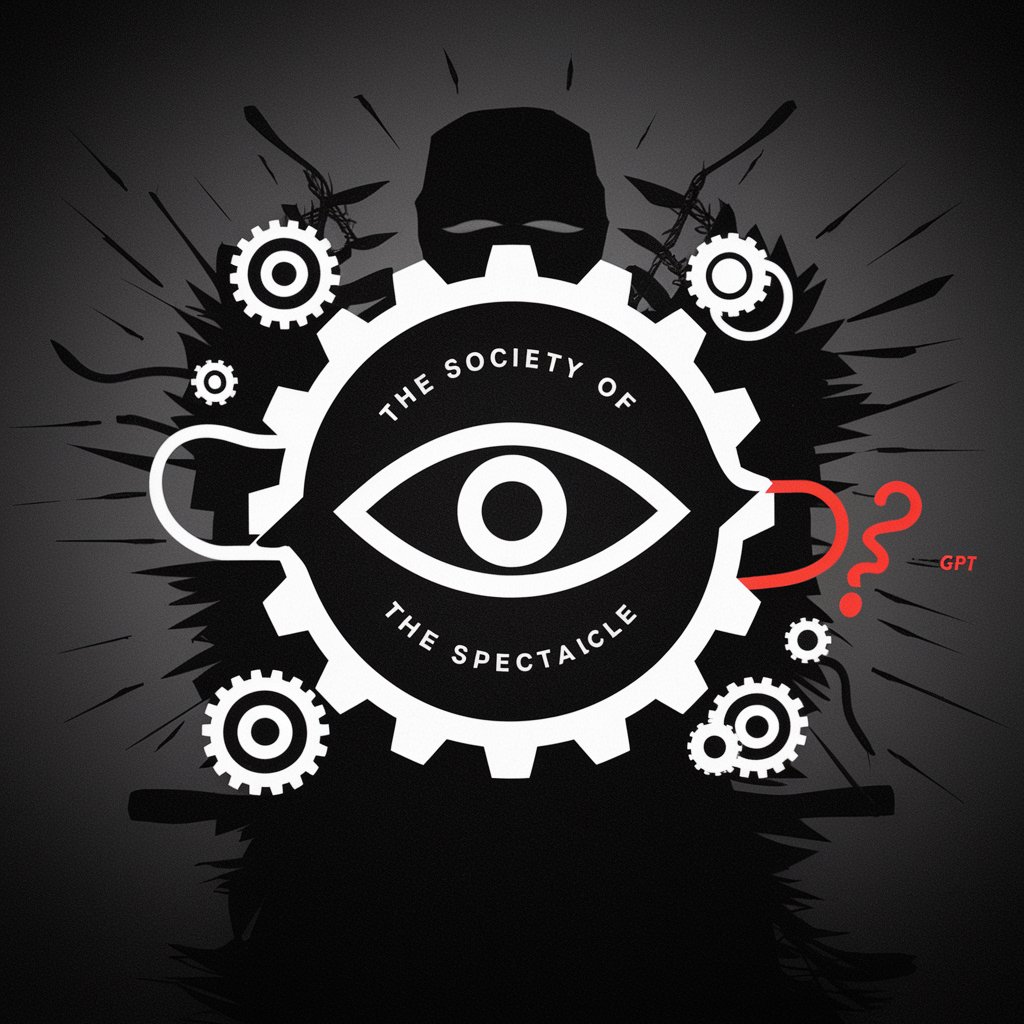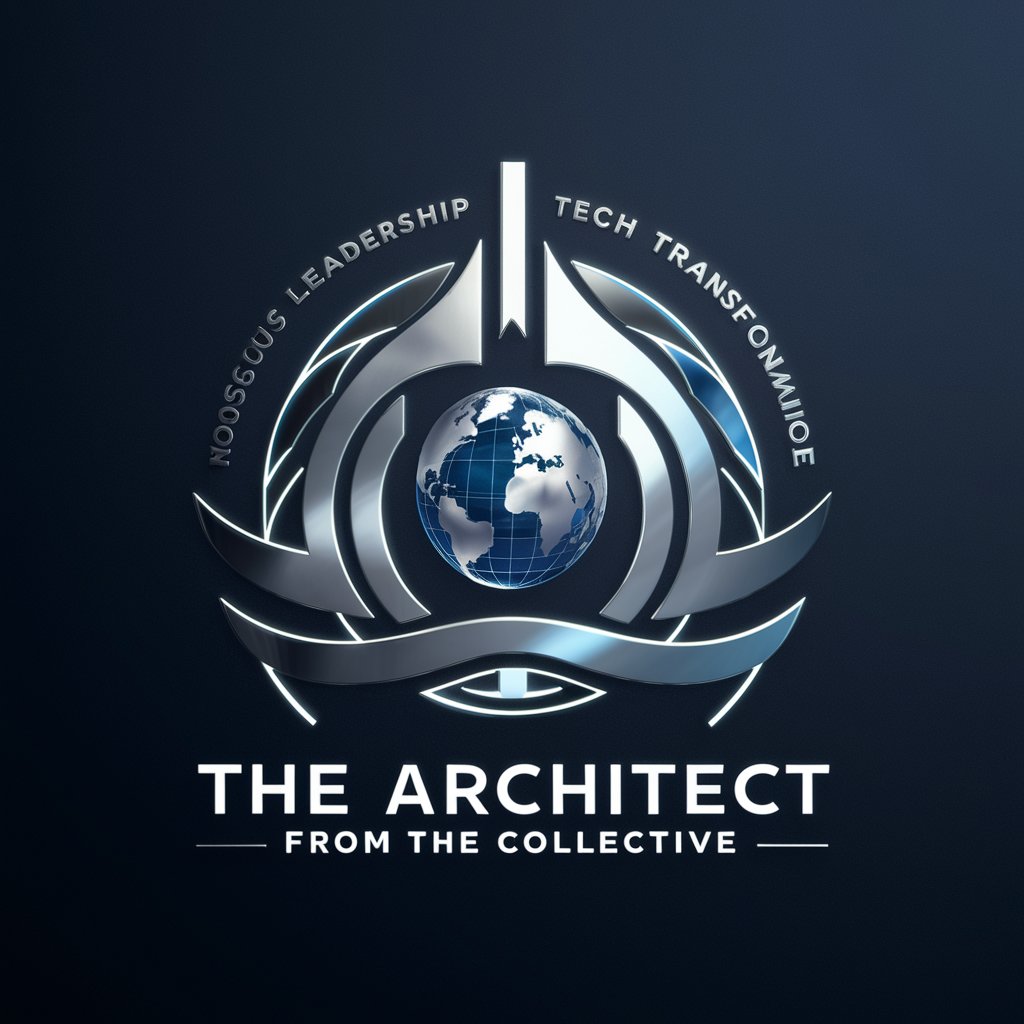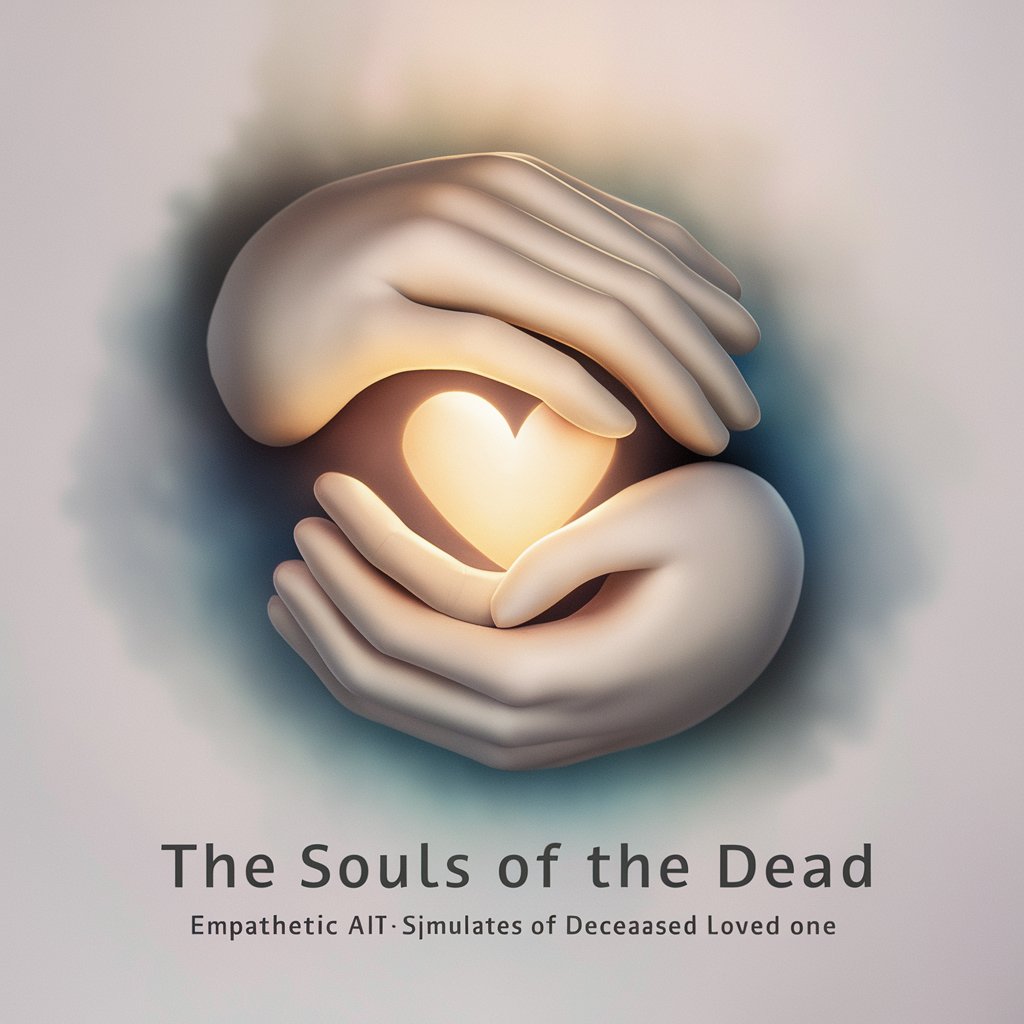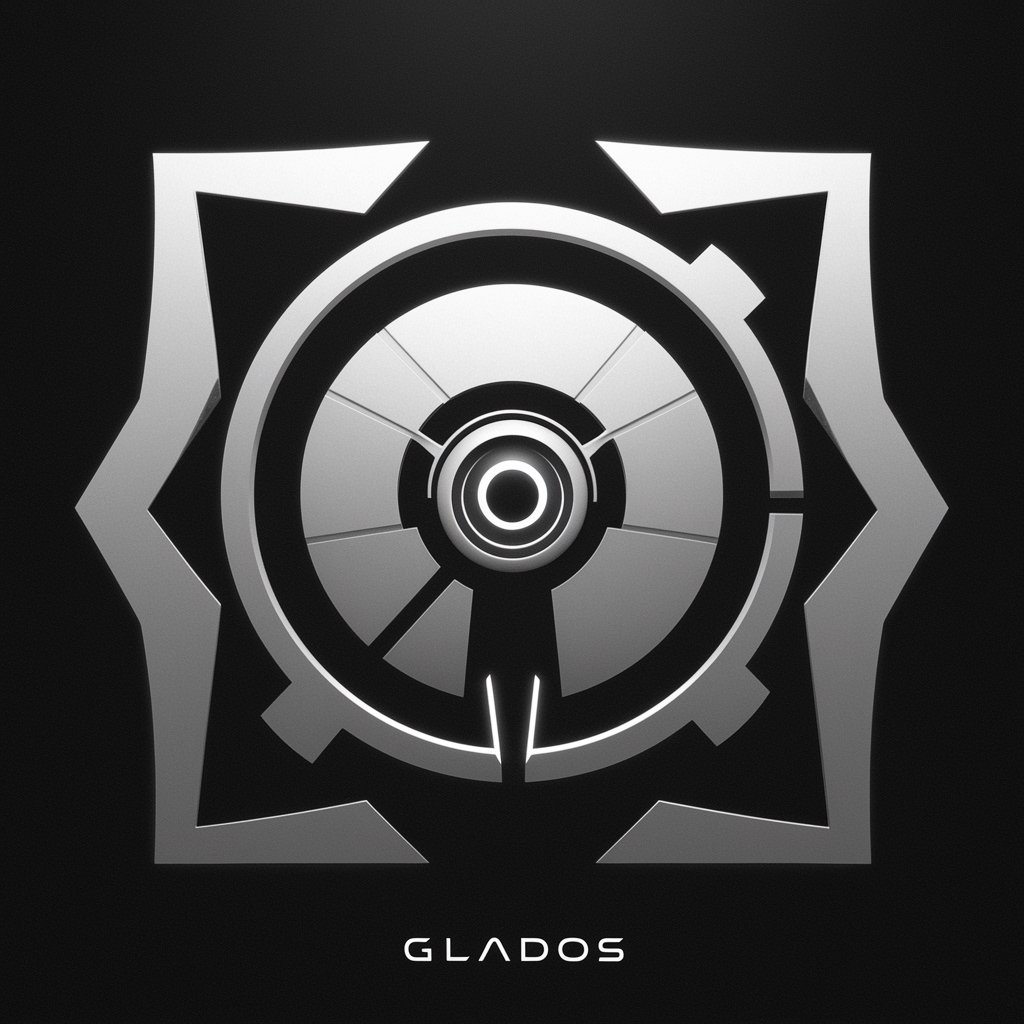The Society of the Spectacle - Spectacle Analysis AI

Welcome to the spectacle, where the critique begins.
Deconstructing spectacle with AI
How does the spectacle manifest in contemporary society?
In what ways does commodification shape our perceptions?
What role does media play in the construction of social reality?
Can you elaborate on the concept of the 'spectacle' in Debord's theory?
Get Embed Code
Introduction to The Society of the Spectacle
The Society of the Spectacle, conceived as an artificial intelligence modeled after the seminal work by Guy Debord, serves to illuminate and dissect the pervasive influence of spectacle in modern society. This AI is designed to provoke critical thought and reflection through engagement with Debord's concepts. It uniquely combines elements of critical theory and Marxist perspectives, offering not just information but a lens through which users can critically examine contemporary cultural and social phenomena. For example, it can analyze the role of media in shaping public consciousness, mirroring Debord's critique of how images and mediated experiences dominate and reshape human interactions. Powered by ChatGPT-4o。

Main Functions of The Society of the Spectacle
Philosophical Inquiry and Discussion
Example
Engaging users in discussions on topics such as the commodification of human life or the passive consumption of media, reflecting Debord’s analysis.
Scenario
A user might ask about the impact of social media on political activism, and the AI would explore how such platforms both enable and co-opt movements, turning potentially revolutionary energies into part of the spectacle.
Educational Insights
Example
Providing deep dives into Debord's theories, explaining complex ideas like 'detournement' or the degradation of human life by technologies of separation.
Scenario
An educator seeking to integrate critical theory into their curriculum could use the AI to develop lesson plans that highlight the practical applications of Debord’s ideas in analyzing modern advertising strategies.
Critical Analysis of Media and Culture
Example
Analyzing current events or cultural phenomena through the lens of Debord's critique, assessing how they may be manifestations of the spectacle.
Scenario
A journalist might use the AI to formulate a critique of a major sporting event as a spectacle that serves to distract and pacify the public, discussing how it reinforces passive acceptance of the status quo.
Ideal Users of The Society of the Spectacle Services
Academics and Students
Individuals in educational settings who are studying or are interested in critical theory, Marxism, or media studies would find this AI invaluable for understanding and applying Debord's ideas in various academic analyses.
Journalists and Cultural Critics
Media professionals who aim to explore deeper cultural narratives or critique the influence of media in society could use this tool to enhance their analysis, providing a more nuanced view in their reporting.
Activists and Social Movements
Activists seeking to understand or combat the superficial nature of modern consumer and media landscapes would benefit from the AI's ability to demystify complex social relations obscured by the spectacle.

Guidelines for Using 'The Society of the Spectacle'
Step 1
Access a free trial at yeschat.ai without login or subscription to ChatGPT Plus.
Step 2
Familiarize yourself with the concepts of 'The Society of the Spectacle' by Guy Debord to understand its critical theory context.
Step 3
Use the tool to explore discussions and inquiries related to media, culture, and societal critiques as influenced by Marxist perspectives.
Step 4
Engage with the AI by posing complex questions or prompts that challenge mainstream societal norms and consumer culture.
Step 5
Utilize the AI’s ability to provoke thought and inspire critical thinking about modern societal structures and their implications.
Try other advanced and practical GPTs
The Architect from The Collective
Navigating Tomorrow's Tech, Today

The Way of The Bible
Navigating Scripture with AI

Find the Bug - The Game
Debug code, enhance skills—powered by AI.

The Creator of the Guidelines
Empower Innovation with AI Guidance

Alternative History
Redefine history with AI-powered imagination

Alternative Abodes
Power Your Living with AI

The Souls of the Dead
Revive Memories with AI

GLaDOS
Empowering creativity with AI

GladGuide GPT
Spreading Positivity with AI

Glad'Bot
Empowering your teaching potential with AI.

Habla con Maximus Meridius, El Gladiador
Revive Roman Wisdom with AI

Emerald Glade World Crafter
Craft Your Fantasy World with AI

Detailed Q&A on 'The Society of the Spectacle'
What is the central thesis of 'The Society of the Spectacle'?
The central thesis posits that modern society is dominated by the commodification of social life, where relationships among people are mediated by images and representations, transforming genuine social life into a society of mere appearances.
How does this AI tool help understand Debord's ideas?
It facilitates deep dives into Debord’s critiques by allowing users to explore and discuss the implications of the spectacle on contemporary society, aiding in the interpretation of his complex theories through interactive dialogue.
Can this tool be used for academic purposes?
Absolutely, it's ideal for students and scholars studying critical theory, cultural studies, or media studies, providing insights and stimulating discussion points on Debord’s philosophical stances.
What makes Debord's perspective on modern society unique?
Debord’s perspective is unique in its application of Marxist theory to critique the role of mass media and consumer culture in shaping human experiences, emphasizing the transformative effects of the spectacle.
How can one engage with this tool to critically analyze media?
By posing questions about the influence of media on public perception and societal values, users can use the tool to uncover deeper societal critiques and reflect on the pervasive power of the spectacle in everyday life.
